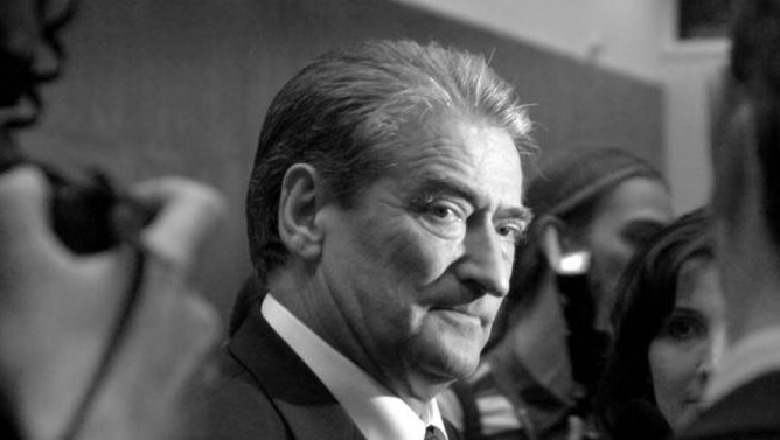Second complaint filed against Sali Berisha over Tropoja killings, as SPAK remains silent

Two of the remaining members of the Haklaj family have filed a second criminal complaint with Albania’s Special Anti-Corruption Prosecution (SPAK), once again accusing the leader of the opposition Sali Berisha of being behind an armed group responsible for a series of killings in the northern district of Tropoja between 1997 and 2002, which left much of their family dead. In an exclusive interview with Report TV, the family claims that their original complaint, submitted in 2022 and supported by documentation, witness testimony, and physical evidence, has produced no investigative response by SPAK.
Why is this important: The Haklaj family occupies a central role in the so-called Tropoja file, which refers to a period of sustained violence in the northern Albanian region during the late 1990s and early 2000s, marked by politically motivated killings and cycles of retaliation. Over nearly a decade, around 150 people were killed in incidents tied to shifting power dynamics in Tropoja—a region long seen as a stronghold of Berisha and his Democratic Party. The lack of movement on this case again raises questions about SPAK’s willingness to address politically sensitive investigations, particularly those involving Berisha, who has also been named in other unresolved files, including the Gërdec explosion where 26 people were killed and the January 21 killings of innocent protestors.
Context: Berisha is originally from Tropoja and maintained significant political influence in the district throughout the 1990s. Following the collapse of his government in 1997, the region became effectively a no-go zone for the Socialist Party. The Haklaj family’s alignment with the Socialist-led government that took power that year, was seen by some as a direct challenge to Berisha’s hold over the area.
The family alleges that this political stance made them targets. In their second complaint, they submitted new evidence related to an ambush on 21 June 1997, at the Milot bridge. Five men, including one of the Haklaj brothers, were attacked. Two were killed—one at the scene, another later in hospital from gunshot wounds. The family argues this was part of a broader campaign of politically motivated violence, not an isolated event. In total, they accuse Berisha and more than a dozen others of establishing and directing an armed group responsible for multiple assassinations and ambushes in the region.
What else: The violence in Tropoja during this period unfolded against a broader backdrop of political instability. In the late 1990s, the region became a transit point for arms and fighters bound for Kosovo, further complicating an already unstable situation.
The Haklajs themselves have been accused of involvement in the 1998 assassination of Azem Hajdari, a founder of the Democratic Party. The family has consistently denied the charge, maintaining that Berisha had a political motive to remove Hajdari, who had grown increasingly independent. The killing triggered a violent escalation, including an attempted coup by Sali Berisha and his Democratic Party supporters.
Though Berisha has faced long-standing allegations related to these and other tragic events, none of the cases have resulted in formal prosecution. The Haklajs argue that this is not due to a lack of evidence, but to a lack of political will.
“SPAK is playing politics with that file. It’s gathering dust,” claimed one of their representatives.
A file that refuses to go away: The current complaint is being led by two of the Haklaj’s surviving sisters. One, a former physics teacher, gained public attention in 2002 after allegedly shooting and killing a man in the center of the town of Bajram Curri in broad daylight in what was widely interpreted as an act of vendetta for the death of her family members. She later sought asylum in Sweden and has very rarely commented on the tragic events. However, in one of her rare public statements, she placed responsibility for the killings squarely on Berisha:
“All the killings had one and only one motive: taking and keeping power at any cost.”
What’s next: Despite the renewed complaint, SPAK has not issued any public comment on the status of the case.


